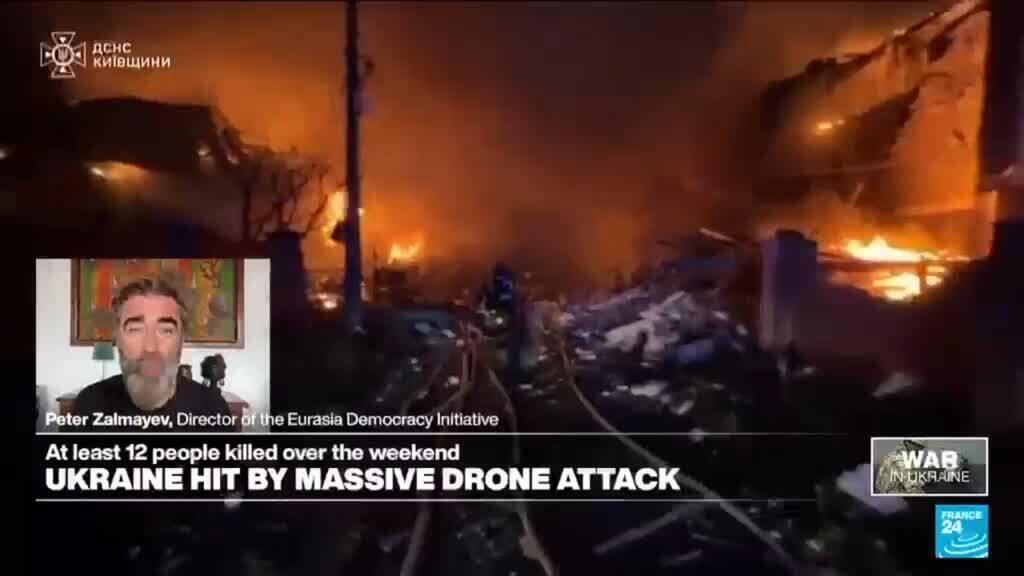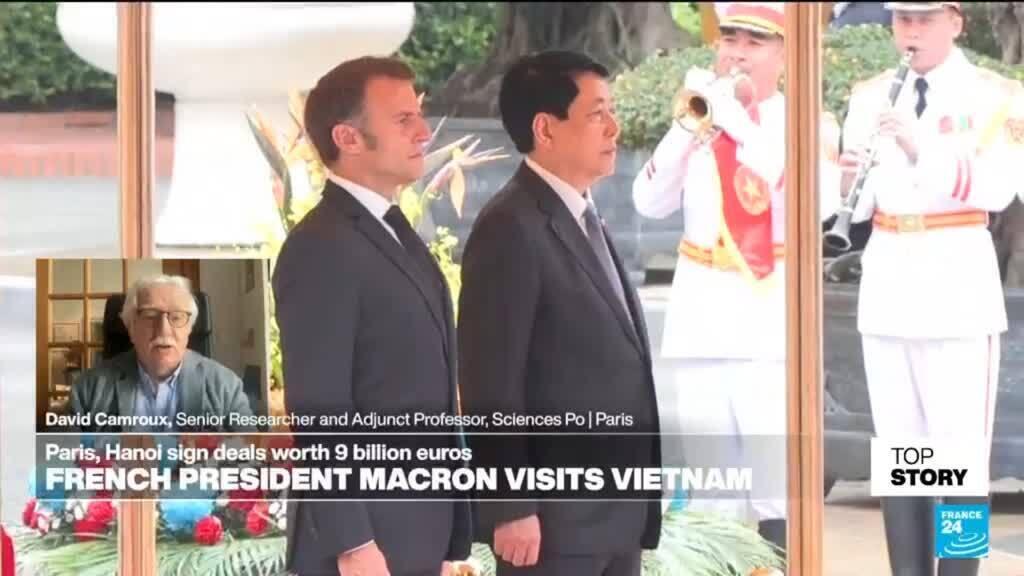In a recent statement, former U.S. President Donald Trump labeled Russian President Vladimir Putin as "crazy" following the Kremlin's offensive that involved a deadly drone attack against Ukraine. This escalation in violence comes at a time when both Ukraine and Russia have managed to conduct a significant prisoner exchange, highlighting the complex dynamics at play in the ongoing conflict.
During a discussion on the implications of these developments, FRANCE 24's Eve Irvine hosted Peter Zalmayev, the Director of the Eurasian Democracy Initiative. Zalmayev provided insights into the broader context of the Russian aggression and the multifaceted nature of the conflict involving Ukraine.
The recent drone attacks are indicative of Russia's ongoing military strategy in Ukraine, which is characterized by a persistent barrage of airstrikes aimed at both military and civilian targets. This particular assault, which resulted in significant casualties, underscores the urgency with which the world needs to address the ongoing humanitarian crisis in Ukraine. The attacks have drawn widespread condemnation from international leaders and organizations, emphasizing the need for a unified response to Russian aggression.
Meanwhile, the large-scale prisoner exchange between Ukraine and Russia serves as a rare point of positive development amidst the ongoing hostilities. Such exchanges are crucial for maintaining a sense of humanity in wartime, albeit temporary, and reflect the ongoing complexities of war where both sides are searching for any semblance of goodwill. Zalmayev noted that these exchanges can sometimes lay the groundwork for potential peace negotiations, although the current landscape seems fraught with tension and mistrust.
Trump's remarks about Putin highlight the shifting perspectives among global leaders regarding Russia's actions and behaviors on the world stage. The term "crazy" reflects a growing frustration among Western leaders regarding Putin's aggressive tactics and the lack of coherent strategy in mitigating the conflict. This sentiment may influence political discourse in the U.S. and the West as they rethink their approach towards Russia.
Moreover, the discussion also touched upon the implications of the drone attacks and prisoner exchanges for broader geopolitical dynamics, especially concerning NATO and the European response to Russian aggression. Zalmayev emphasized that the international community must remain vigilant and united in its stance against Putin's actions, signaling that any perceived weakness could invite further aggression.
The ongoing conflict in Ukraine has far-reaching consequences not only for the region but for global security as well. As military actions escalate, the stakes become higher for Ukrainian sovereignty, Russian accountability, and the collective response from Western nations. Furthermore, the humanitarian impact on Ukrainian civilians continues to rise, necessitating immediate international humanitarian aid and support.
In conclusion, the situation in Ukraine remains highly volatile, marked by aggressive military actions and crucial diplomatic gestures such as the prisoner exchange. The words of leaders like Trump and the analyses of experts like Zalmayev shed light on the current state of affairs, shaping the future of international relations and strategies surrounding the unfolding crisis.
```











